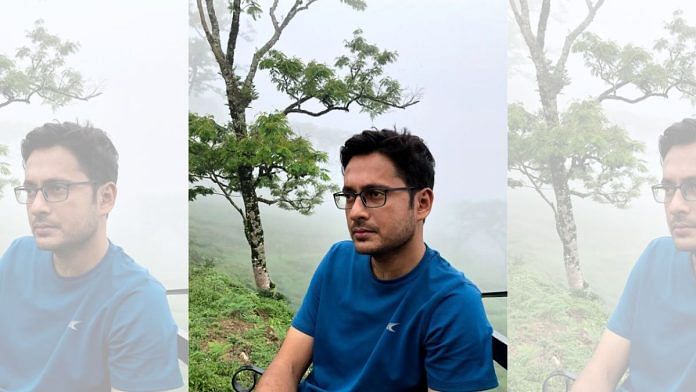Kolkata: It was the evening of 16 March in New York City. The next day, a Bengali film titled Dostojee would be released in the US. As the film’s director Prasun Chatterjee stood at Times Square, not knowing if he was a little tense or confident about the audience reaction the next morning, he heard a small crowd next to him clap.
He looked up and saw the teaser of Dostojee on the giant billboards of Times Square. The crowd had perhaps read enough about the film to be so excited to see its teaser. “They didn’t know it was my film. I was just another face. And that is okay. My film was up there for all to see. I could have never imagined Dostojee’s teaser would be displayed on Times Square billboards,” Chatterjee, now back in Kolkata, after a whirlwind tour of many continents, tells ThePrint.
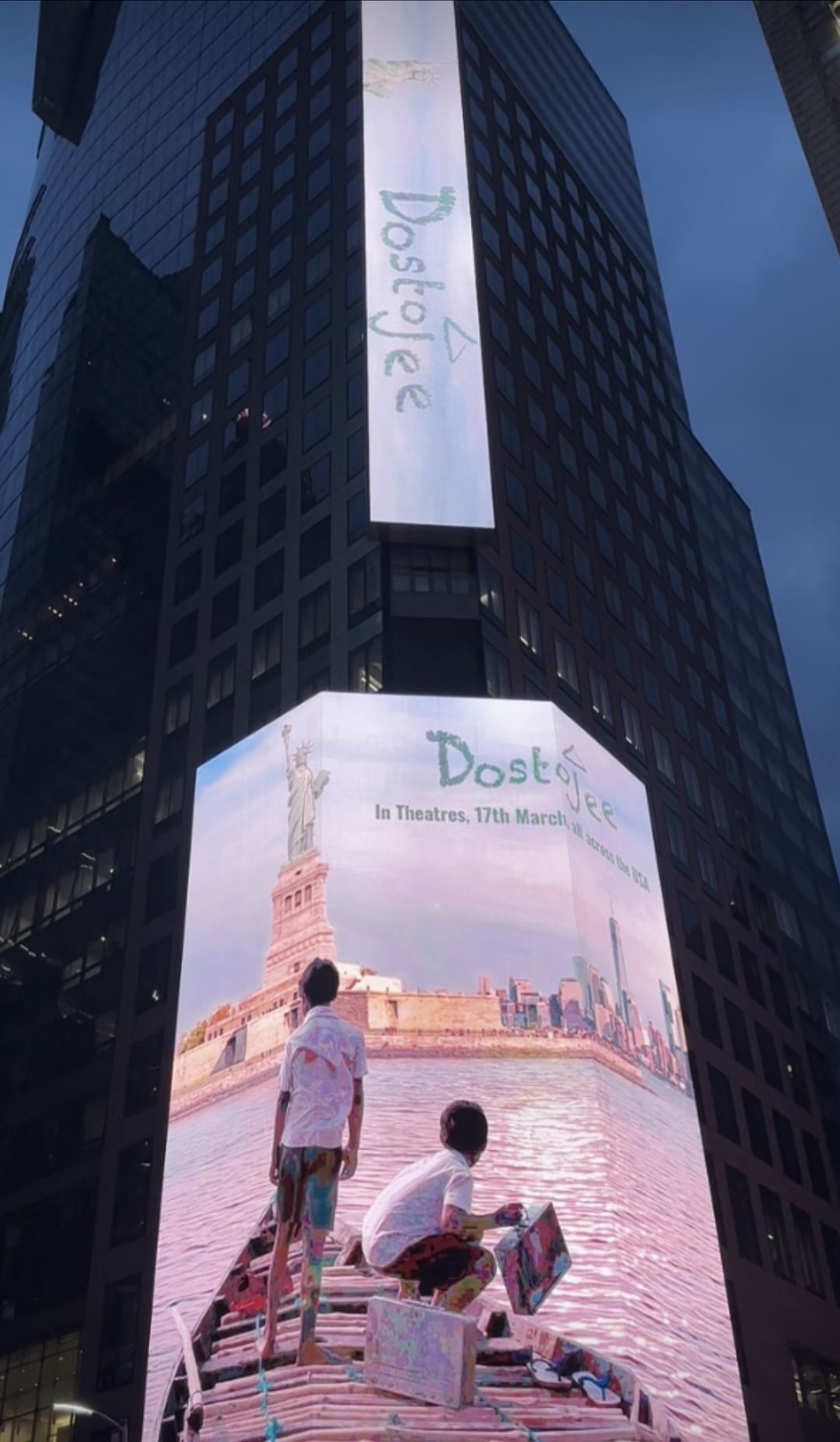
The last few months have turned the unassuming young man, now 38, from Kolkata’s Dum Dum area into a bit of a jetsetter. The West simply can’t have enough of Dostojee—a film about the friendship of two boys from two faiths in a dusty village near India’s border with Bangladesh.
Its story takes place around six months after the fall of the Babri Masjid on 6 December 1992. The poison of communal hatred spreading across the nation singes this small village too, which has more Muslims than Hindus. The film narrates what happens to the beautiful friendship between the two boys as competing communal threats turn neighbours into enemies.
The cycle of violence never ends. We pick and choose sides according to our convenience while humanity dies every time we draw blood.-Prasun Chatterjee
Dostojee, set in the early 1990s, could well be the parable of our current times. “I do not know what to believe any more. The fall of the Babri Masjid and the blast at the Bombay Stock Exchange had shaken my belief in humanity. The cycle of violence never ends. We pick and choose sides according to our convenience while humanity dies every time we draw blood,” Chatterjee says.
Also read: After 350 films & 4 decades of acting, Prosenjit still reinvents himself with every new film
Oppressed is also oppressor
If art is about truth telling, Chatterjee believes we must go beyond the obvious. In an international flight recently, Chatterjee says he witnessed reverse racism. A Black air hostess was visibly discriminating against a single, White woman while favouring a Black couple sitting right next to her.
“It was an uncomfortable situation. Others around me noticed her behaviour as well. But what could anybody say? Fed up with racism maybe, the airhostess behaved how she did. But what was the fault of the White passenger? Should she pay for the behaviour of racist White people?” Chatterjee asks.
The world of Dostojee does not perpetuate the beautiful lie of what is called the Ganga-Jamuni Tehzeeb (Hindu-Muslim harmony). Instead, it pits the prelapsarian innocence of Satyajit Ray’s Pather Panchali (1955) against the complexities of our world.
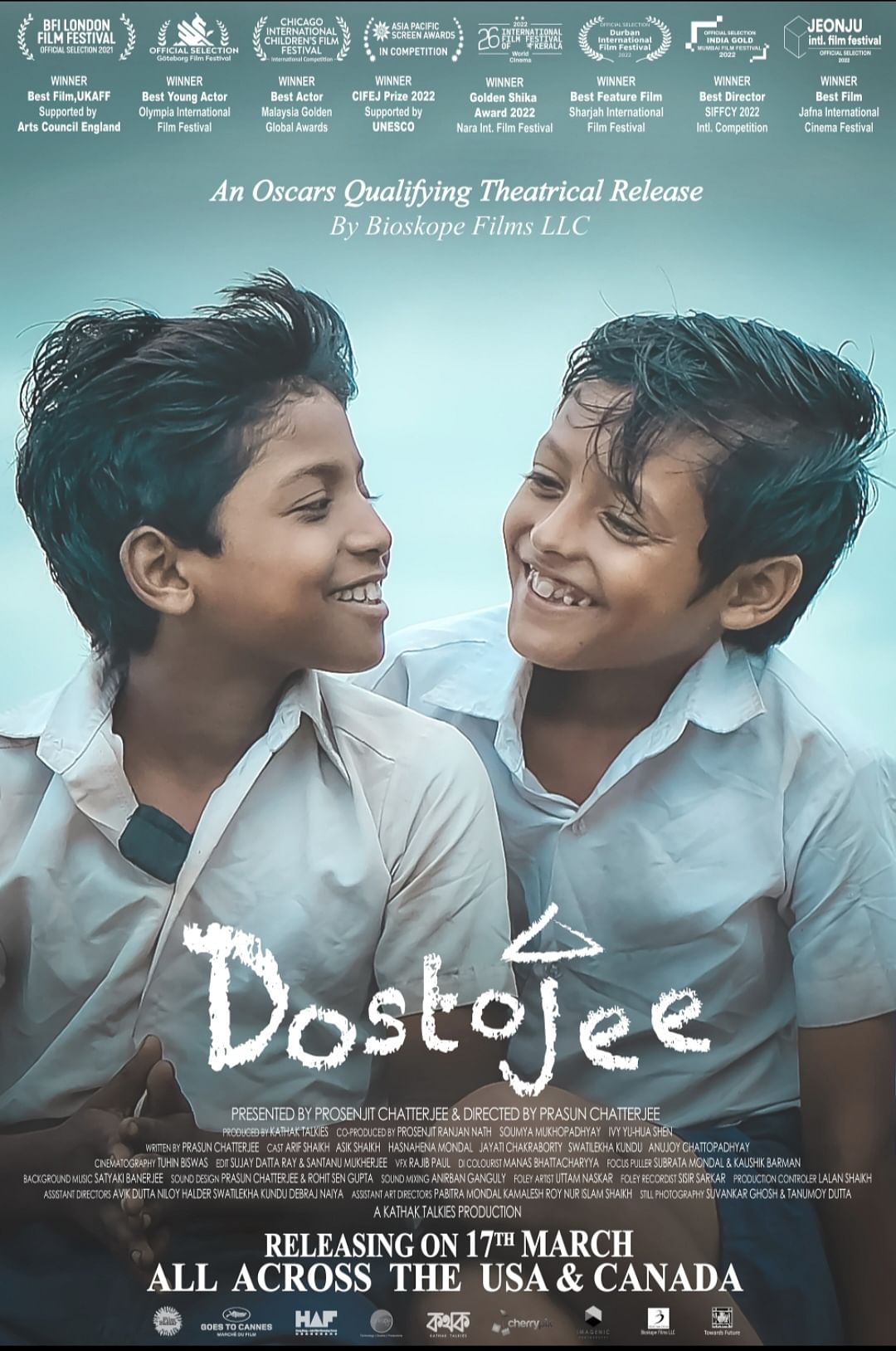
When Palash’s parents, one of the two boys in the film, talk about shifting to another village with more Hindus, he cannot end his day without spending most of it with his Dostojee, Safikul. At the same time, Safikul gets severe punishment from his father for watching the Ram Rath Yatra with his Hindu friend.
Chatterjee sees deeper divisions than Hindu-Muslim or Black-White. He says the world is divided between those who have and those who don’t.
To be poor is the real curse–Prasun Chatterjee
“At the Dubai Mall, for instance, a poor Muslim migrant worker from Bengal or Bangladesh or even Pakistan, who slaves away his years in a foreign land, won’t feel welcome. There are inviable glass doors that are closed for him. But a rich Hindu will be comfortable being in that space. To be poor is the real curse,” says Chatterjee. And yet, he hasn’t lost hope in life or art.
He says it is his dream to open a school some day for poor village kids like the characters in Dostojee. He is saving up for that day.
Also read: Bengali films avoid Hindu themes. But Subhrajit Mitra’s Devi Chowdhurani set to change that
Dostojee to the world
It is perhaps the director’s ability to see beauty in small things that has captivated the world. The film travelled to 32 international film festivals in 26 countries. It premiered at the 65th BFI London Film Festival with biggies from Hollywood such as No Time to Die (2021) and King Richard (2021). Not just that, it won nine international awards, including the CIFEJ Prize Winner of 2022 supported by UNESCO, the Golden Shika from Japan, the Global Impact Award from Chicago International Children Film Festival, the Malaysia Golden Global Award, the Best Film award from the Arts Council of England and the Best Film award from Sharjah and Jaffna International film festival.
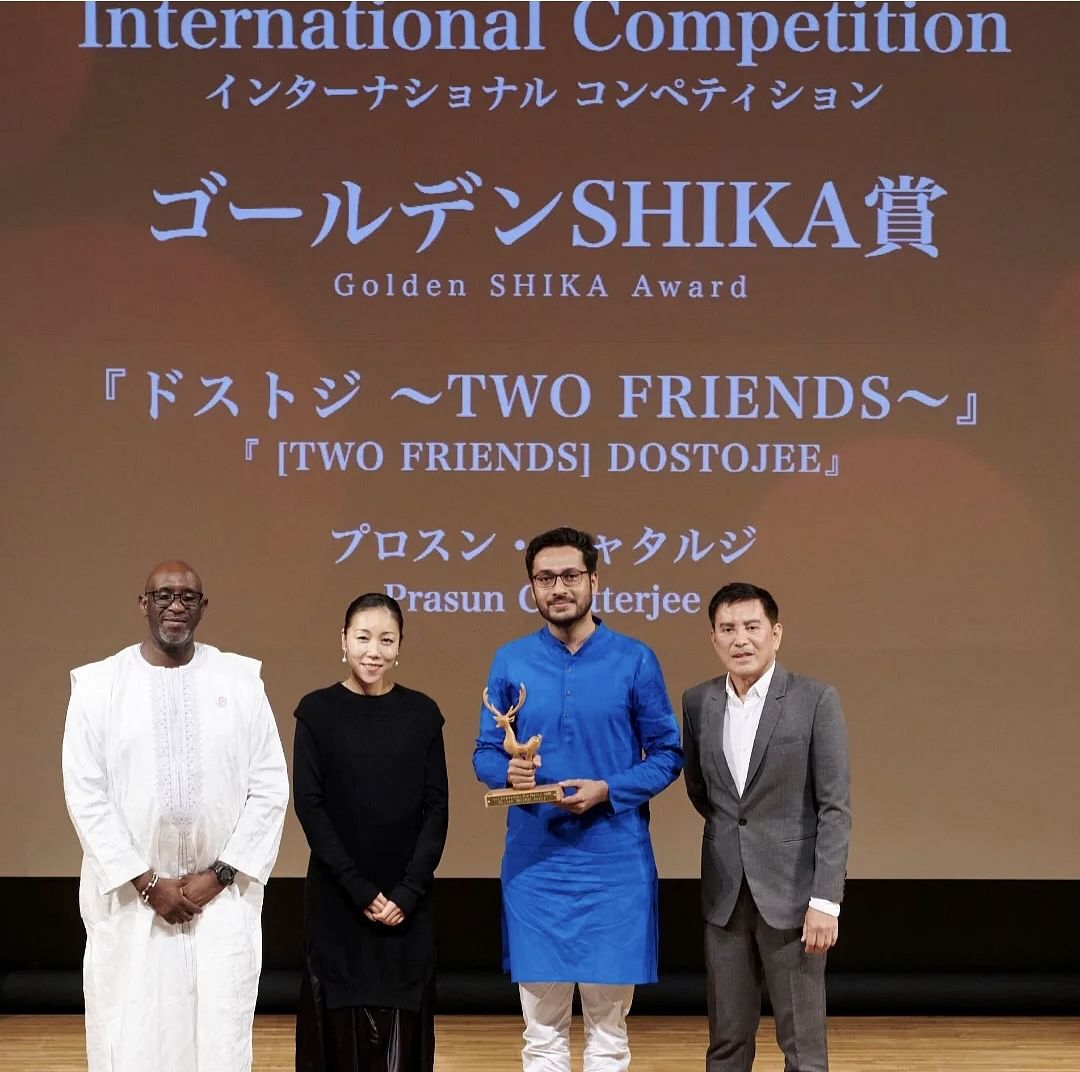
After winning four Filmfare Awards Bangla in India (Best Film, Best Director, Best Screenplay and Best Cinematography), Dostojee had an Oscars’ Qualifying Theatrical Release in 75 cities across the US.
It was also released in Taiwan on 28 July with Chinese Mandarin subtitles, and within three days became a box-office hit. “In a market dominated by local films, US blockbusters and hits from East Asian neighbours, award-winning Indian art house film “Dostojee” in the Bengali language has proved an unexpected hit in Taiwan,” wrote the TaiwanPlus, a state-funded free English language streaming service and television channel in Taiwan.
On 31 July, the platform wrote that Taiwan has a third alternative after Oppenheimer (2023) and Barbie (2023). It was Dostojee.
Also read: Parambrata Chatterjee is a ‘man written by a woman’. He is Bengali cinema’s Irrfan Khan
Beauty of staying unknown
Even though Dostojee is winning over the world, it has not made Chatterjee a star. Or even a regular face on TV talk shows on cinema and culture.
I cannot do what is need to become a star filmmaker or a celebrity–Prasun Chatterjee
“I am not a star filmmaker. I cannot be. It is not who I am. I will be lying if I say money and fame mean nothing to me. I believe a film has to be commercially viable. But I can not do what is needed to become a star filmmaker or a celebrity,” Chatterjee says.
In Kolkata, Chatterjee still takes the metro. He doesn’t own a car as he says commuting in a private vehicle will shut out the world for him.
And then there is the advice of Iranian cinema legend Asghar Farhadi, in whom Chatterjee has found a friend and mentor.
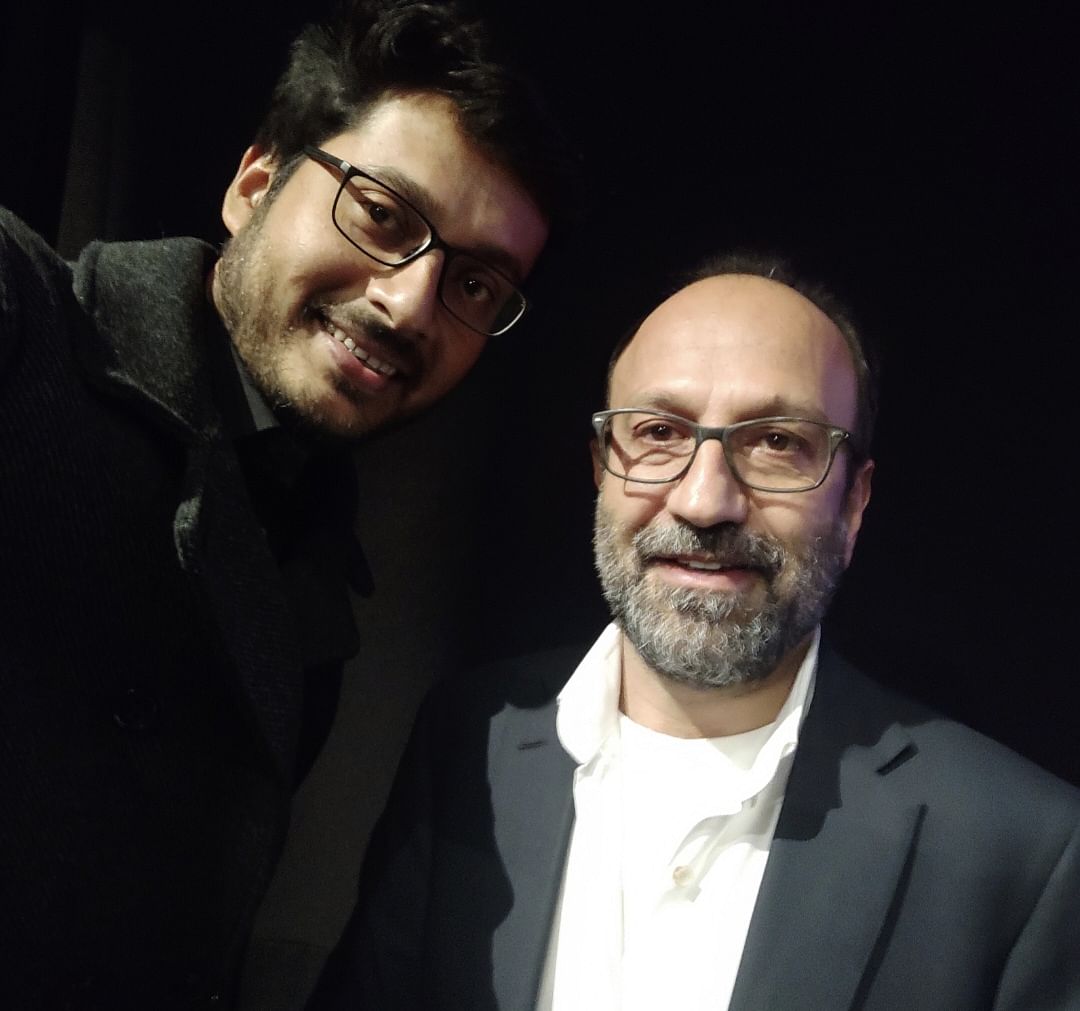
“During the premiere of Dostojee at the London Film Festival, Farhadi told me not to lose myself to all this adulation. He said I should never lose the world of Dostojee that I carry in me and the more local I go, the more global my art will be,” Chatterjee says.
It is that advice that perhaps helped Chatterjee to say no to a Hollywood producer (he won’t say who it was). The producer was so taken in by Dostojee that he offered Chatterjee up to $ 10 million to direct an English language film in the US.
“I was elated and then unsure and then I politely declined. I mean, it is a lot of money. But I do not know if I am ready to handle such a budget, work with a large crew or scale up my next project to that level. I told him we will be in touch. All I want to do now is lose myself to my next idea, be consumed in the process of researching, writing and then directing my next film,” Chatterjee says.
(Edited by Ratan Priya)


